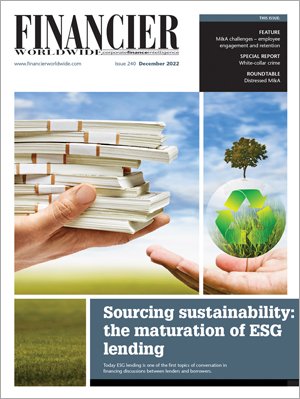Innovation vs. regulation: getting the balance right
December 2022 | FEATURE | BANKING & FINANCE
Financier Worldwide Magazine
The relationship between financial services innovation and regulation is dynamic and changing faster than ever. There is a delicate balance between encouraging innovators and empowering regulators.
In the UK, the Treasury Committee – appointed by the House of Commons to examine the expenditure, administration and policy of HM Treasury, HM Revenue & Customs, and associated public bodies – is at the forefront of finding the right balance between innovation and regulation.
“The financial services sector is at a turning point,” says Mel Stride MP, chair of the Treasury Committee. “Regulators are taking on new powers following the UK’s exit from the European Union (EU), and it is vital that regulators are not leant on to inappropriately water down regulations, an area in which the Committee will remain vigilant.
“There are likely to be real opportunities to lessen regulatory burdens without weakening standards,” he continues. “It is also important that regulators have an objective to promote growth, not just for the UK financial services sector, but for the wider economy.”
To this end, as outlined in its 2022 ‘Future of Financial Services’ report, the Treasury Committee reaches several conclusions and makes a number of recommendations designed to achieve this balance. Some of the key items are listed below.
First, the Treasury should respect the principle of regulatory independence, and must not pressure the regulators to weaken or water down regulatory standards.
Second, there should be a secondary objective for the Financial Conduct Authority (FCA) and the Prudential Regulatory Authority (PRA) to promote long-term economic growth.
Third, the Treasury should continue to reject any calls for a growth or competitiveness objective to become a primary objective. This would increase any pressure on regulators to trade off competitiveness against resilience and would undermine the regulators’ ability to deliver on their core functions. There is a danger that as memories of the financial crisis fade, its lessons are forgotten.
“There is a delicate balance between encouraging innovators and empowering regulators.”
Fourth, the Treasury should require the FCA to have regard for financial inclusion in its rulemaking.
Fifth, regulatory independence is critical for the competitiveness and effectiveness of UK financial services regulation. The host of new accountability mechanisms proposed by the Treasury must be carefully reviewed in this light, to ensure that regulatory independence is not compromised.
Sixth, the FCA should consider how to improve its engagement with the poorest consumers and must seek data on the issues vulnerable consumers experience directly.
“Following the UK’s withdrawal from the EU, regulators have taken on new and greater powers,” affirms Mr Stride. “Underpinning our financial services industry is the principle of regulatory independence, as well as the operational independence of the Bank of England. The Committee will remain alert to ensure that regulators are not leant on to inappropriately water down regulations to the detriment of the safety and soundness of our financial services system.”
Regulatory response
Having had several months to digest the Treasury Committee’s conclusions and recommendations, the response of the PRA and the FCA, as well as the UK government, was published in ‘Future of financial services regulation: responses to the Committee’s First Report: Second Special Report of Session 2022-23’.
In its view, the PRA agreed that independence of the Bank of England is vital to maintaining the effectiveness of financial regulation. The PRA also agreed with the Committee’s assessment that pursuing international competitiveness in the short term by lowering the UK’s strong standards would not result in sustainable economic growth.
“This is important not only for the pursuit of safety and soundness and financial stability, but also because the independence of regulators is an important foundation of our international standing and therefore part of the UK’s ability to remain at the forefront as an international financial centre,” wrote Sam Woods, chief executive of the PRA and deputy governor of the Bank of England.
For its part, the FCA supports the Committee’s position on regulatory independence, but takes issue with the recommendation that the regulator should “have regard” to financial inclusion, arguing that it would not increase the FCA’s existing ability to act in line with objectives set for it.
Balanced future?
As we move forward, it is clear that the challenge of maintaining a robust regulatory landscape without stifling business innovation is an increasingly important issue facing UK financial industry watchdogs.
“By being focused on outcomes – rather than writing rules for every scenario – we can support new businesses and entrants to the market, as well as existing firms who are adapting their business models,” says Sarah Pritchard, executive director, markets at the FCA. “Firms want to know what we want from them and what is needed. We aim to give that certainty and clarity.
“Technological and market structure changes mean that this perimeter has become more ambiguous, with some firms uncertain on the regulatory permissions they need,” she concludes. “Under the ‘Future Regulatory Framework’ draft guidance, we hope to give as much certainty as possible under the current legal framework.”
However, with the UK government poised to introduce a Financial Services & Markets Bill aimed at revoking retained EU law on financial services, the battle to get the right balance between innovation and regulation has only just begun.
© Financier Worldwide
BY
Fraser Tennant


